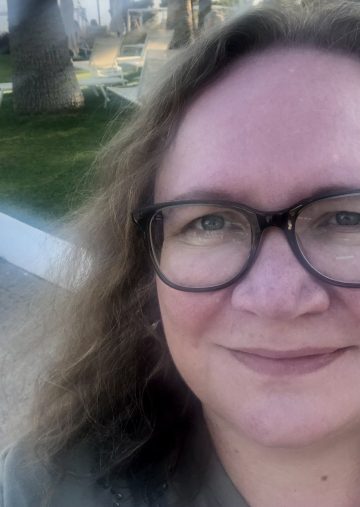
Baby journals and books often cover a baby’s first twelve months of life or a child’s first few years of growth. The idea is that parents fill in blank pages with various topics and milestones to create lifelong memories by observing and documenting.
My research colleague Alexandra Nordström and I have studied Finnish baby journals and memory books as a cultural and textual sample of the way we think and conduct childhood observations. We suggest that baby books put parents and other educators under more pressure to monitor their toddlers’ development. Expectation-based observation is also a wider educational issue. Growing up, in adults’ eyes, is about growing toward something. This weakens our perception of childhood’s fundamental significance.
Growth as an achievement
Many people think of a baby as an infant, the beginning of a human, without the capacity to share anything. Etymologically infant refers to ‘unable to speak’ which reveals the role of language in child figurations. A posthuman perspective offers an opening for culture in which making sense of other beings and being in relation, joining with, to them is not a linguistic matter. Understanding posthuman babies is also therefore about respecting a wide range of beings and non-verbal sensing and sense-making.
It is natural to think that a new member of the family will bring enormous joy. The four Finnish baby journals we have deeply looked at and critically considered, seems to demonstrate joy as connected to an understanding of child development and chronological growth. Growth is supposed to be reported as daily, weekly and/ or monthly achievements (e.g. skill-based development) of the child.
The pre-written prompts and thought-starters in baby journals and books guide parents to observe certain topics and happenings, milestones and achievements. In our thinking, this indicates the educational nature of journals as they ‘guide and teach’ parents to observe their babies in a certain way. Parents (and other adults) learn to tick off the developmental milestones that have been achieved.
“Do not miss anything”
In one sense, baby journals and memory books represent a ‘do not miss anything culture’ as they are also marketed with the idea of ‘remembering all the firsts’. As a result, ‘do not miss anything’ becomes a mantra, a psychological certainty, guiding the parent’s observation of the child. For example, one memory book asks parents to fill the whole page listed with various ‘firsts’: the baby’s first smile, bath, wave, going out, laugh, first words, first moment of crawling, sitting, taking the first steps and many other firsts. Nothing should pass the observers’ attention. This directs observers to focus on all the first times and wait for them to happen.
The first year of a child’s existence is critical for his or her development and growth. However, it should be remarkable in and of itself, without regard to expectations. There is a need to develop a new culture of postdevelopmental observation with the focus on staying with moments in action, joining the connection of the living lines of a world and life itself.
Researchers and educators could start to search for alternative modes for deeper appreciation of connections and joining withs. Through the recognition of how we formulate childhood observations, we need to start rethinking the approaches through which we are connected to childhood in general and ask what it would be to grow and be educated without normative expectations. This also concerns early childhood education practitioners, institutions and other cultural and societal actors in the field.
 The new book ”Postdevelopmental Approaches to Pedagogical Observation in Childhood” (edited by Mona Sakr, Jennifer Rowsell and Kourtney Sherbine, Bloomsbury Academic, August 2023) argues that developmental approaches to observation in childhood pedagogy are limiting, restrictive, and present social justice dilemmas. This topical book unsettles, dismantles, and reimagines observation, proposing new postdevelopmental theories and modes of inquiry for educators. I, Sara Sintonen (professor, University of Turku, Early Childhood Teacher Education ) and Alexandra Nordström (researcher and teacher educator, University of Helsinki ) collaborated a chapter ”Posthuman Babies: Reconceptualizing a Baby’s First Year” to it.
The new book ”Postdevelopmental Approaches to Pedagogical Observation in Childhood” (edited by Mona Sakr, Jennifer Rowsell and Kourtney Sherbine, Bloomsbury Academic, August 2023) argues that developmental approaches to observation in childhood pedagogy are limiting, restrictive, and present social justice dilemmas. This topical book unsettles, dismantles, and reimagines observation, proposing new postdevelopmental theories and modes of inquiry for educators. I, Sara Sintonen (professor, University of Turku, Early Childhood Teacher Education ) and Alexandra Nordström (researcher and teacher educator, University of Helsinki ) collaborated a chapter ”Posthuman Babies: Reconceptualizing a Baby’s First Year” to it.
The writer Sara Sintonen is a professor of Early Childhood Education at the University of Turku.